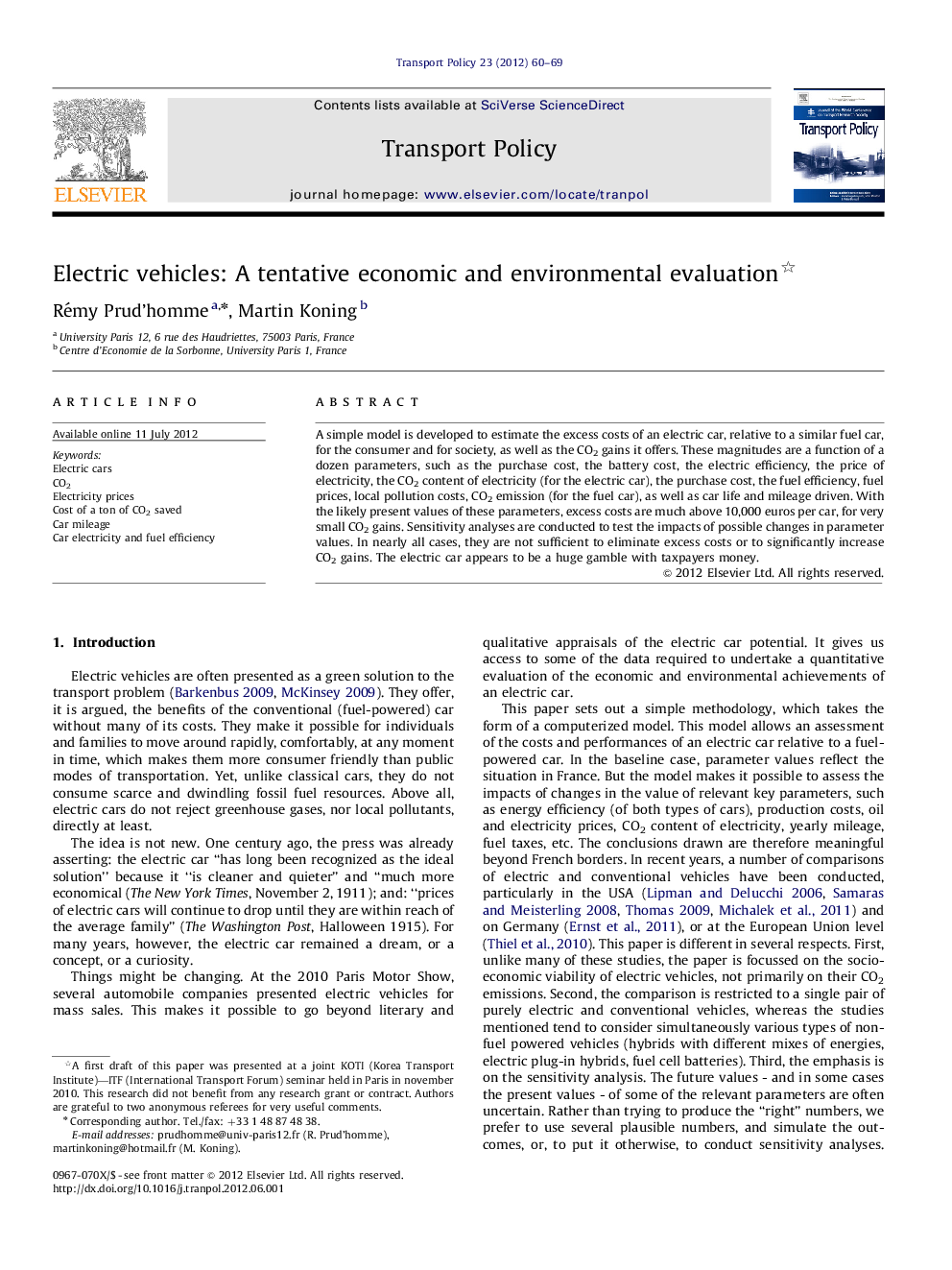| Article ID | Journal | Published Year | Pages | File Type |
|---|---|---|---|---|
| 1065171 | Transport Policy | 2012 | 10 Pages |
A simple model is developed to estimate the excess costs of an electric car, relative to a similar fuel car, for the consumer and for society, as well as the CO2 gains it offers. These magnitudes are a function of a dozen parameters, such as the purchase cost, the battery cost, the electric efficiency, the price of electricity, the CO2 content of electricity (for the electric car), the purchase cost, the fuel efficiency, fuel prices, local pollution costs, CO2 emission (for the fuel car), as well as car life and mileage driven. With the likely present values of these parameters, excess costs are much above 10,000 euros per car, for very small CO2 gains. Sensitivity analyses are conducted to test the impacts of possible changes in parameter values. In nearly all cases, they are not sufficient to eliminate excess costs or to significantly increase CO2 gains. The electric car appears to be a huge gamble with taxpayers money.
► An electric car costs at least 10,000 € more than a similar conventional car. ► An electric car saves only 0–18 tons of CO2 (relative to the similar conventional car) over its lifetime. ► Only extreme and unlikely changes in the coming two decades could modify these conclusions. ► Electric cars appear therefore as a huge gamble with tax payers money.
